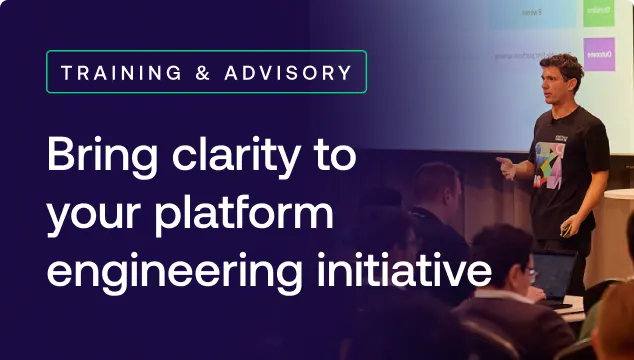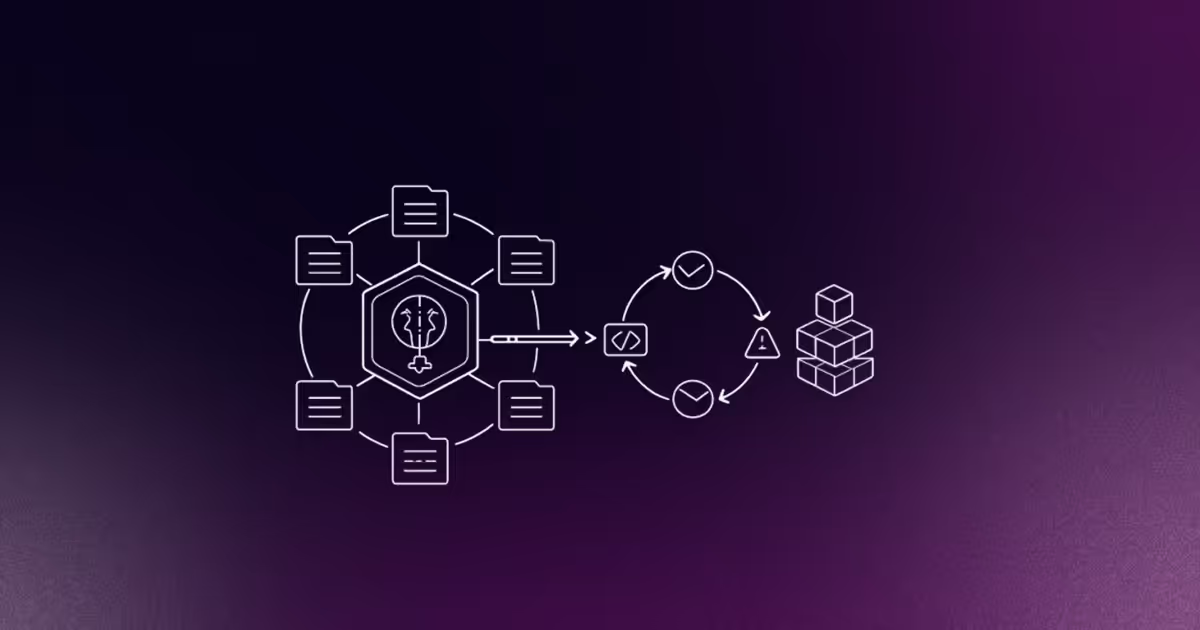As organizations race to deliver software faster through engineering revolutions like AI, security must be at the core of the development lifecycle. It cannot just be an afterthought, let alone a final checkpoint that happens right before deployment. The problem is, developers don’t wake up excited to tweak configurations or wrestle with security controls or access policies. And a considerable chunk of security incidents still come down to one thing: misconfigurations.
This is where platform engineering really comes through: meet the Security Platform Engineer (SPE). The SPE’s mission is straightforward: embed security principles directly into the Internal Developer Platform (IDP) itself, making secure practices the default path rather than an obstacle course developers must navigate. This way, SPEs minimize the developer cognitive load required to execute security policies and practices, and they transform security from an often frustrating gatekeeper function, into an enabler of faster, safer software delivery.
Where security platform engineers fit
To understand the role of SPEs, we need to look at how they integrate across the entire platform engineering ecosystem. Unlike traditional security teams that might swoop in for reviews and audits, SPEs are present at every stage of the platform lifecycle. Platform engineers might in fact be better equipped than security engineers themselves to deliver and enforce security benefits without tanking developer experience.
In the design and architecture phase of the platform, they're defining security standards that become the foundation for everything built on the platform. During development and deployment, they're implementing automated security checks and policy enforcement. At runtime, they're continuously monitoring for threats and managing vulnerabilities. And from beginning to end, they're ensuring the platform meets the ever-expanding universe of compliance requirements.
Technical responsibilities
So what exactly does a SPE do on a day-to-day basis?
Security automation and policy enforcement
SPEs are tasked with automating security controls and policy enforcement at scale. This means implementing policy-as-code solutions like Open Policy Agent or Kyverno to govern access and infrastructure configurations automatically.
They build security gates into CI/CD pipelines that can catch vulnerabilities before they reach prod, and manage infrastructure security policies for increasingly complex cloud-native environments. The goal is simple, but powerful: make it impossible to deploy insecure code by default.
Secure infrastructure and application configurations
Misconfigurations are one of the most common causes of security breaches, and SPEs tackle this by designing secure-by-default configurations across infra components like K8s clusters, databases, and networking layers. They should also take ownership of secret management, leveraging tools such as HashiCorp Vault or AWS Secrets Manager to prevent credential exposure. Plus, be responsible for enforcing strict access controls through fine-grained IAM policies and Role-Based Access Control (RBAC), making sure that both people and systems operate with only the permissions they actually need.
Threat detection and proactive monitoring
If your security is reactive in this day and age, you’re doomed. It’s as simple as that. SPEs implement real-time security analytics and monitoring to detect threats before they become breaches. This includes setting up Security Information and Event Management (SIEM) solutions and runtime security monitoring tools like Falco.
They're also increasingly leveraging machine learning and behavioral analysis to spot strangeness that traditional rule-based systems might miss. The name of the game is staying one step ahead of attackers.
Incident response and risk mitigation
When incidents do occur (and they 100% will), SPEs need to enable rapid response and mitigation. They create incident response playbooks and, where possible, automated remediation workflows to minimize impact.
They conduct forensic analysis to understand what happened and prevent similar breaches in the future. And crucially, they collaborate closely with other teams to ensure a coordinated response that balances security with maintaining service availability.
Compliance as code
Regulatory compliance is often viewed as a burden, so SPEs transform it into an automated, continuous process built into the platform. They ensure adherence to frameworks like ISO 27001, SOC 2, and NIST by translating compliance requirements into automated checks and controls.
Rather than preparing for audits with frantic documentation efforts, they build systems that maintain compliance continuously and can generate evidence on demand. This approach turns compliance from a periodic scramble into a continuous state.
The collaborative nature of the security platform engineer
Security platform engineers don't operate in isolation; like all other platform engineering sub-disciplines, their work touches virtually every aspect of the platform. This makes collaboration a core requirement of the role.
They work hand-in-hand with Infrastructure platform engineers to ensure infrastructure is secure by design. They partner with DevEx platform engineers to embed security into developer workflows without creating friction. They align with Reliability platform engineers to ensure security controls don't compromise performance or availability. And they coordinate with Operations platform engineers to integrate security monitoring with broader operational processes.
This collaborative approach represents a profound shift from traditional security models, where security teams often operated separately from development and operations. The SPE breaks down these silos, making security everyone's responsibility while providing the tools and guidance to do it effectively.
Manage expectations
SPEs face intense pressure as security threats multiply and regulatory requirements expand. The key challenge is balancing comprehensive security with platform usability and developer productivity.
It's essential to maintain focus and resist the temptation to boil the ocean. Like with Platform Engineering in general, we recommend starting by identifying the most frequent and impactful security paths, then automating and optimizing them first. By delivering ROI quickly and setting clear expectations, you can build momentum without becoming overwhelmed by the vast scope of potential security concerns.
The future of Security Platform Engineering
As security threats grow more sophisticated, the role of the SPE will continue to evolve. We're already seeing the rise of AI-driven security analytics, zero-trust architectures, and continuous compliance tools reshaping how SPEs operate.
Organizations that invest in robust security platform engineering won't just mitigate risks - they'll gain a competitive advantage through faster, safer software delivery. Security will increasingly be viewed not as a cost center or necessary evil, but as an enabler of innovation and trustworthy products.
Conclusion
The security platform engineer stands at the intersection of platform engineering and cybersecurity, embedding security into the platform, rather than bolting it on afterward. By automating security controls, enforcing policies as code, and making secure practices the path of least resistance, SPEs enable organizations to move fast without breaking things - or compromising security.
As platform engineering continues to transform how we build and operate software, the security platform engineer will be indispensable in ensuring that transformation happens securely. Their work doesn't just protect organizations from threats: it enables the confident, rapid innovation that modern businesses demand.
If you want to become a platform engineer or ensure your team is ready for the Platform Engineering future, take a look at our Platform Engineering Certification courses. We will be covering Security Platform Engineering as well in our modules.













